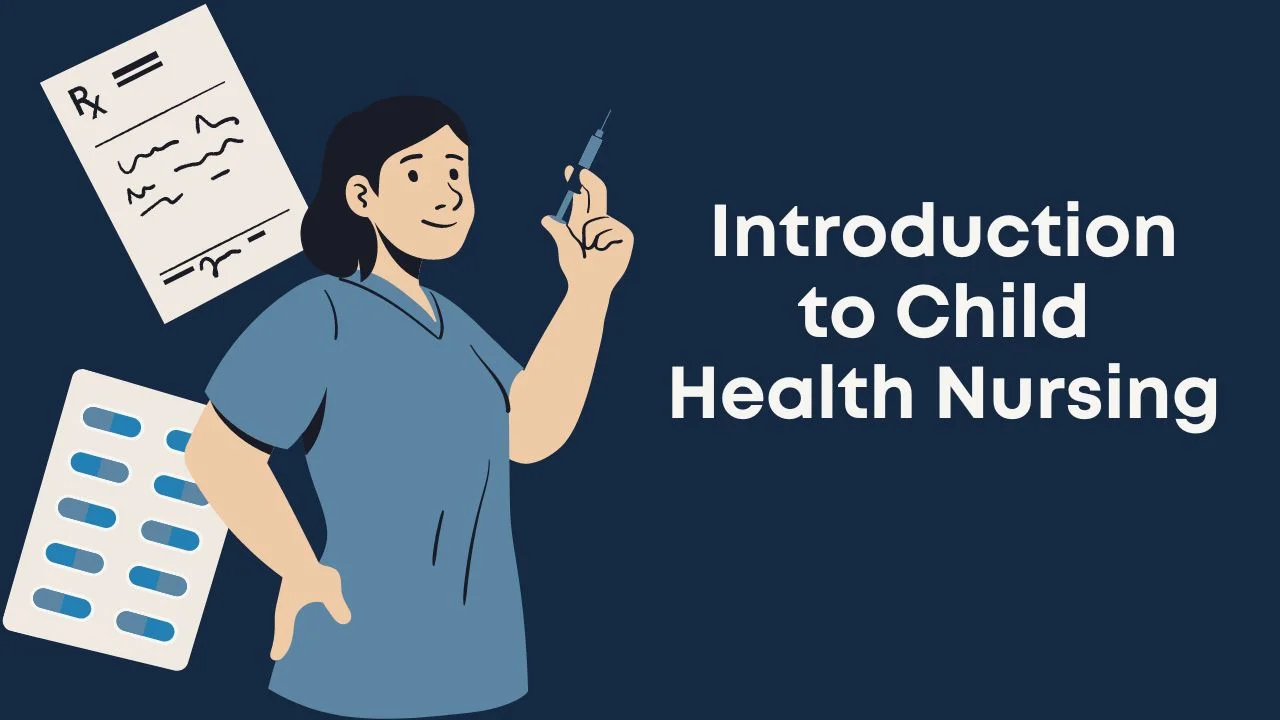Introduction to Child Health Nursing

Child health nursing is a vital and specialized field within nursing that focuses on the holistic care of children from infancy through adolescence. This profession plays a critical role in ensuring that children achieve optimal health and development, addressing a wide range of physical, mental, and emotional needs.
The Fundamentals of Child Health Nursing
Child health nursing involves a comprehensive approach to healthcare, including prevention, treatment, and management of health conditions. Nurses in this field are experts in pediatric care, equipped to handle everything from routine check-ups to complex medical conditions. Their primary goal is to promote and maintain the health and well-being of children through various stages of growth and development.
Preventive Care and Health Promotion
Preventive care is a cornerstone of child health nursing. Nurses work diligently to prevent illnesses and injuries by administering vaccinations, conducting regular health screenings, and educating families about proper nutrition, hygiene, and safety. By emphasizing prevention, child health nurses help reduce the incidence of diseases and promote healthier lifestyles among children and their families.
Managing Acute and Chronic Conditions
Child health nurses are trained to provide care for children with acute illnesses and injuries, ensuring they receive prompt and effective treatment. Additionally, these nurses play a crucial role in managing chronic conditions such as asthma, diabetes, and congenital disorders. Through individualized care plans, they help children and their families navigate the challenges of long-term health conditions, improving the child’s quality of life.
Family-Centered Care Approach
A unique aspect of child health nursing is its family-centered care approach. Nurses recognize the essential role of families in a child’s health and involve them in every step of the care process. This collaborative approach ensures that families are well-informed, supported, and empowered to participate actively in their child’s healthcare. By fostering strong relationships with families, child health nurses create a supportive environment that promotes better health outcomes.
Addressing Mental Health Needs
Mental health is an integral part of child health nursing. Nurses in this field are skilled in identifying and addressing psychological and emotional issues in children. They provide counseling, support, and referrals to mental health specialists when necessary. Ensuring the mental well-being of children is critical for their overall development, and child health nurses play a pivotal role in creating a nurturing environment where children can thrive emotionally and mentally.
Diverse Practice Settings
Child health nursing services are delivered in various settings, each offering unique opportunities to impact children’s health. In hospitals, child health nurses work in pediatric wards, intensive care units (ICUs), and emergency departments, providing care for critically ill or injured children. Clinics and community health centers offer preventive and primary care services, focusing on routine check-ups and health education. In schools, child health nurses promote a healthy learning environment by providing health services and education. Home care services enable nurses to support children with special healthcare needs in the comfort of their homes.
The Impact of Child Health Nursing
The importance of child health nursing cannot be overstated. Early intervention and appropriate care can prevent numerous health issues and contribute to lifelong well-being. Child health nurses possess specialized knowledge and skills to address the unique healthcare needs of children and support their families effectively. Their work has a profound impact on individual patients and the broader community, promoting healthier generations.
Developing Comprehensive Care Plans
Creating and implementing comprehensive care plans is a fundamental aspect of child health nursing. These plans are tailored to meet the specific needs of each child, considering their physical, mental, and emotional health. By collaborating with other healthcare professionals, child health nurses ensure that children receive holistic and coordinated care. This multidisciplinary approach is essential for addressing the complex health needs of children and achieving positive health outcomes.
Advocacy and Education
Child health nurses are strong advocates for the health and well-being of children. They work tirelessly to ensure that children have access to the necessary healthcare services and resources. Advocacy efforts extend beyond healthcare settings, influencing policies and practices that benefit children’s health. Education is another critical component of their role, as child health nurses provide valuable information to families about health promotion, disease prevention, and the management of health conditions. This educational role empowers families to make informed decisions about their child’s health and well-being.
Role of Nurse in Child Health
Child health nurses play a crucial role in ensuring the health and well-being of children. They provide comprehensive care that spans prevention, treatment, and ongoing management of various health conditions.
Nurses administer vaccinations, conduct regular health screenings, and educate families about proper nutrition and safety measures. They are equipped to handle acute illnesses and injuries, ensuring that children receive prompt and effective treatment.
Additionally, child health nurses manage chronic conditions such as asthma, diabetes, and congenital disorders. They create individualized care plans to improve the quality of life for affected children.
By adopting a family-centered care approach, these nurses actively involve families in the healthcare process. This fosters a supportive environment that leads to better health outcomes.
Benefits and Care of Child Health
Child health nursing offers numerous benefits that contribute to the overall well-being and development of children. Preventive care provided by child health nurses reduces the incidence of diseases and promotes healthier lifestyles.
Regular health screenings and vaccinations help prevent serious health issues. This ensures that children stay on track with their developmental milestones.
The family-centered approach of child health nursing ensures that families are well-informed and supported. This is vital for effective healthcare management.
Addressing both physical and mental health needs, child health nurses provide holistic care. They support the emotional and psychological well-being of children.
By managing chronic conditions and providing timely treatment for acute issues, they enhance the quality of life for children and their families.
Key Responsibilities and Benefits of Child Health Nurses
| Responsibility | Details | Benefits |
|---|---|---|
| Preventive Care | Administering vaccinations, conducting health screenings, educating families on health topics | Reduces disease incidence, promotes healthy lifestyles |
| Acute Care | Treating injuries and illnesses | Ensures prompt and effective treatment |
| Chronic Condition Management | Developing individualized care plans for chronic conditions like asthma, diabetes | Improves quality of life, provides long-term health management |
| Family-Centered Care Approach | Involving families in the healthcare process, providing support and education | Enhances family involvement, leads to better health outcomes |
| Mental Health Support | Identifying and addressing psychological issues, providing counseling | Supports emotional and psychological well-being |
Frequently Asked Questions
What is the primary role of a child health nurse?
A child health nurse provides comprehensive care to children. They focus on prevention, treatment, and management of health conditions. They also educate and support families in maintaining their children’s health.
How do child health nurses promote preventive care?
Child health nurses promote preventive care by administering vaccinations. They conduct health screenings and educate families on proper nutrition, hygiene, and safety measures to prevent illnesses and injuries.
What is the importance of family-centered care in child health nursing?
Family-centered care involves families in the healthcare process. It ensures they are well-informed and supported. This approach fosters a supportive environment that leads to better health outcomes for children.
How do child health nurses address mental health needs?
Child health nurses identify and address psychological and emotional issues in children. They provide counseling, support, and referrals to mental health specialists as needed. This ensures holistic care for the child’s overall well-being.
Conclusion
Child health nursing is a vital field dedicated to ensuring the well-being and healthy development of children. Through preventive care, management of chronic conditions, and attention to mental health, child health nurses play a crucial role in promoting the overall health of children. Their work in various settings highlights the comprehensive nature of this profession. By advocating for children and educating families, child health nurses empower communities and contribute to healthier generations. Understanding the significance of child health nursing helps appreciate its profound impact on individual patients and society as a whole.






